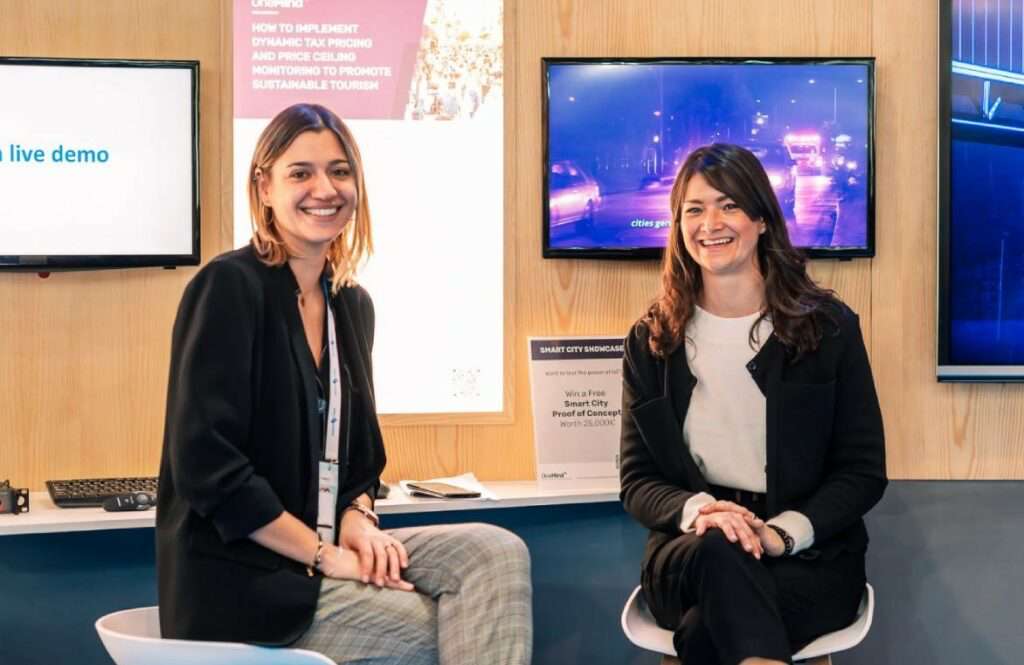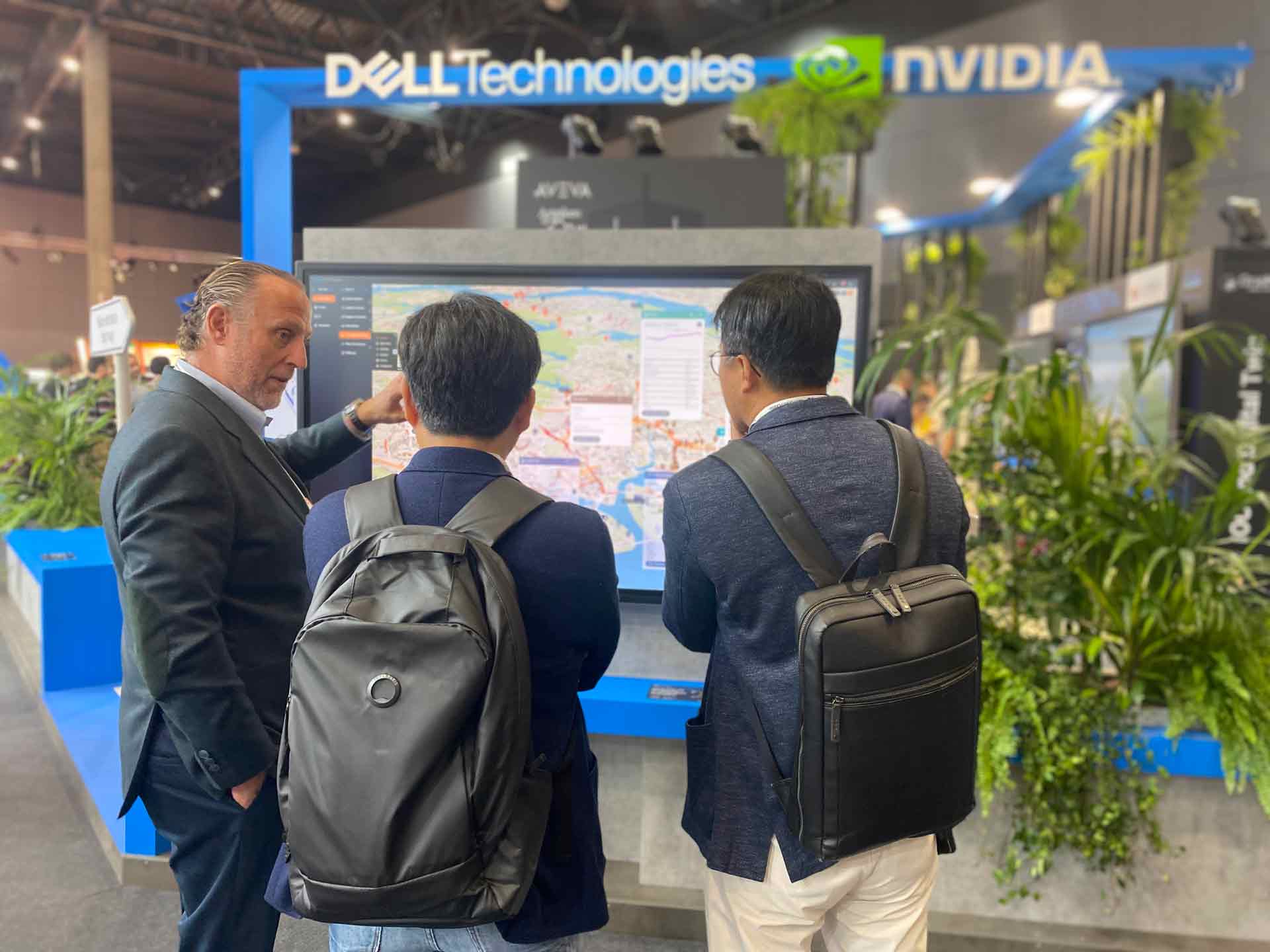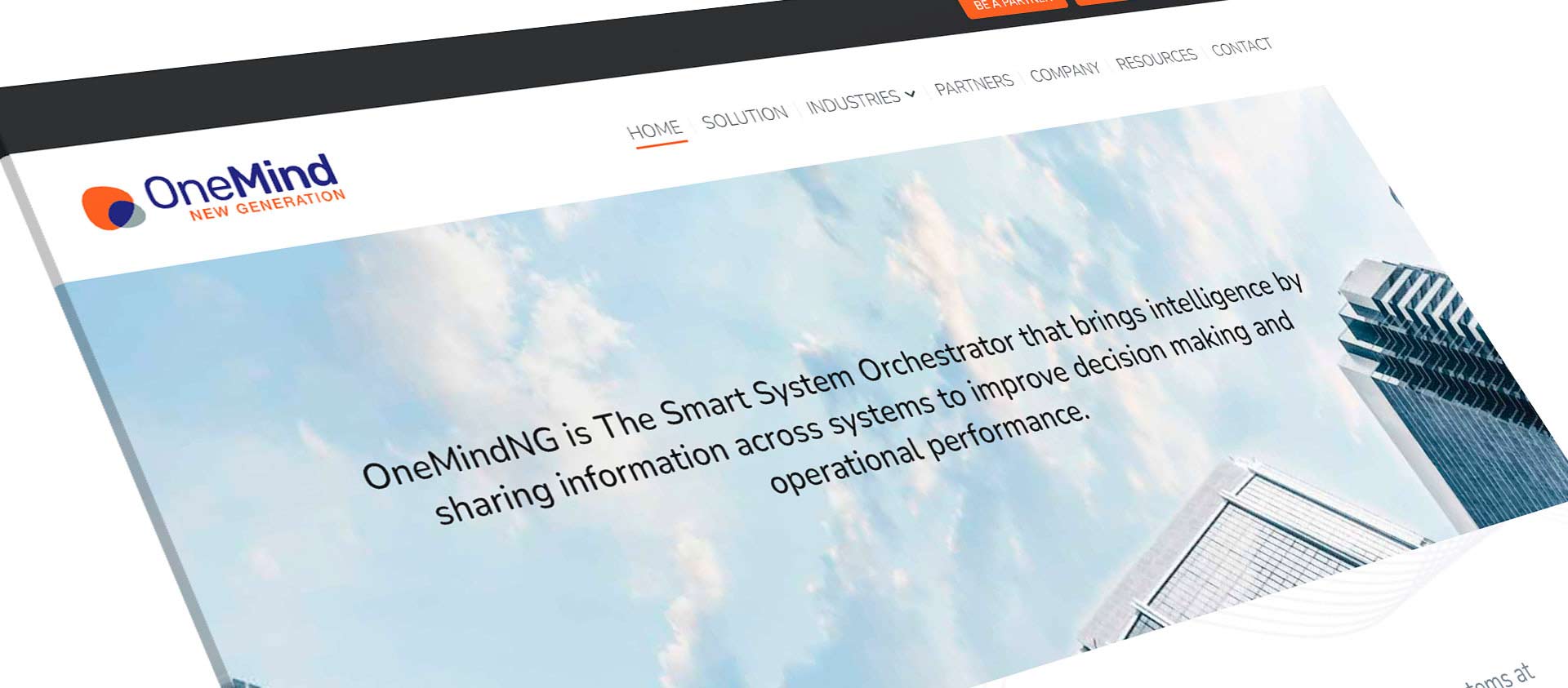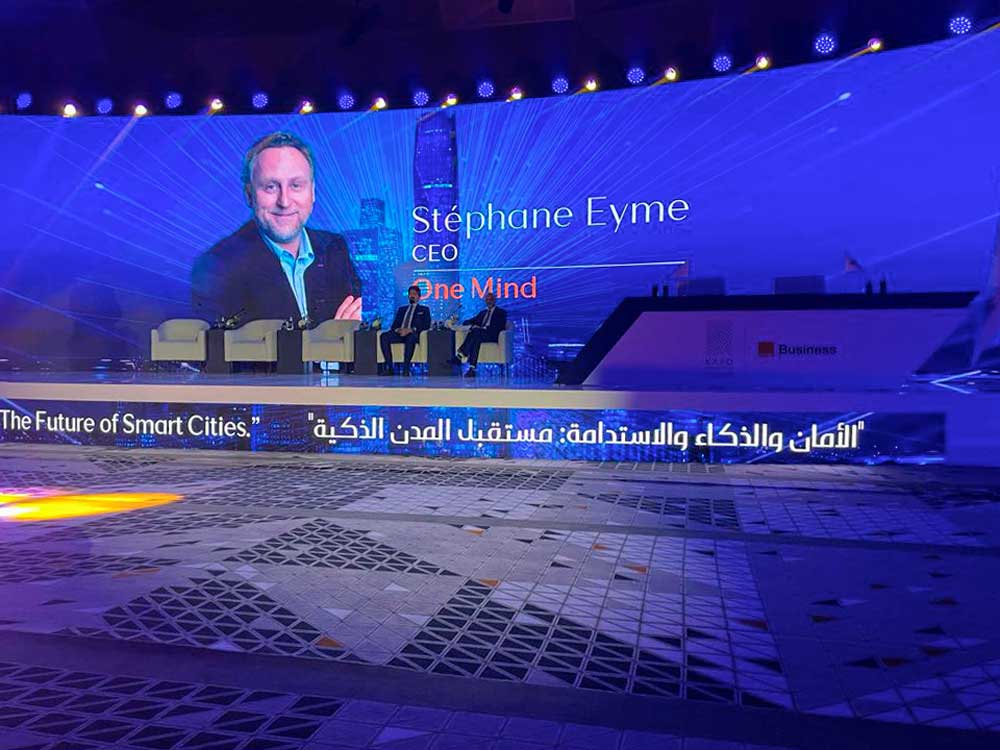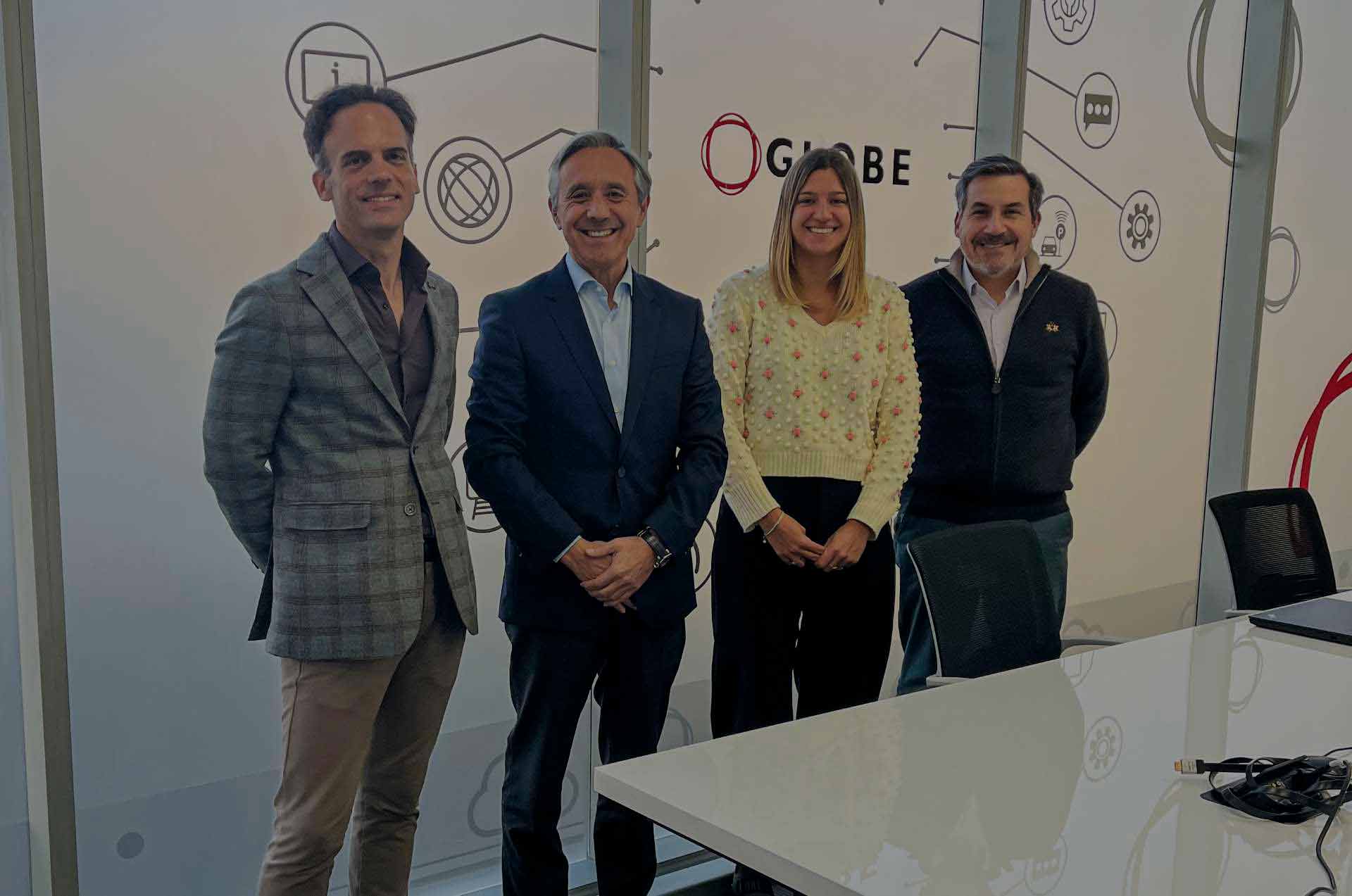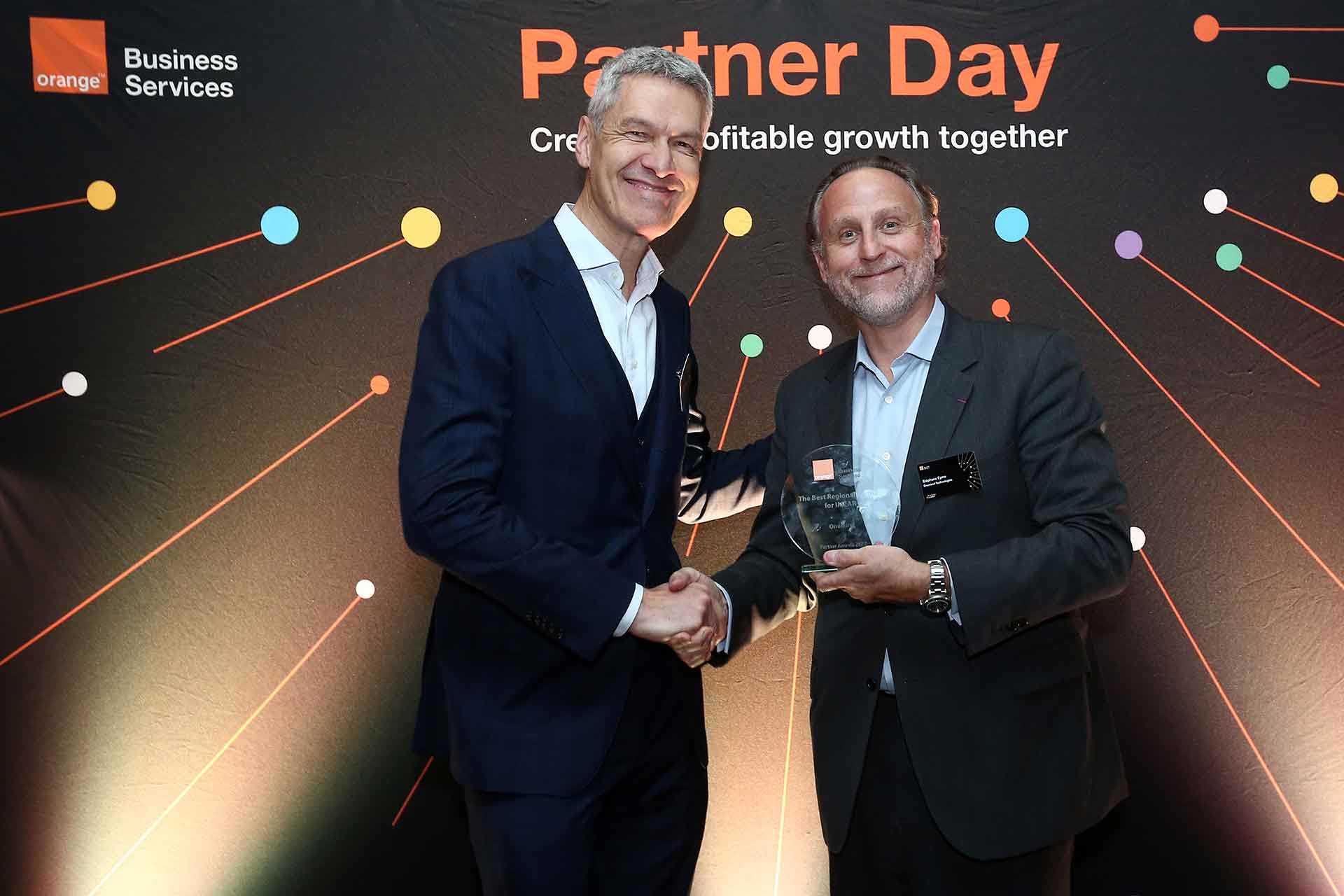IoT, as the main accelerator for digital transformation, has seen rapid growth in recent years. According to the International Data Corporation (IDC), this trend does not seem to be stopping any time soon. Forecasts predict that the IoT global market revenue will reach approximately US$ 1.1 trillion by 2025.
Yet for business owners and leaders to understand the real impact of IoT and be better prepared for the upcoming changes, it is important that they appreciate the difference between individual IoT systems and end-to-end IoT solutions that can actually enable transformation. With the latter, they can gain real-time intelligence and make decisions based on actionable insights.
Two service managers within OneMind give us their impressions and visions on the topic. Nuria Casas, Head of Delivery and Customer Success and Pilar Retana, Head of Presales present how, for them, IoT can revolutionize the way industries and cities operate and explain how OneMind, our intelligent solution, serves this purpose.
We are experiencing a hype where IoT influences everything. A multitude of products is labelled “IoT platform” in the market. How are decision-makers supposed to figure out what product is best for their business or city if they’re not an expert?
Pilar Retana: “In the first place, decision-makers need to know what problem they want to solve, this sounds very obvious but it’s not so easy sometimes. Businesses or cities often know that they’re not being efficient in managing their operations or assets, but they don’t know what technology they need in order to improve. And this is normal. It’s technology experts like us who need to do the job to help them define which areas to work on to achieve their goals.
If you are evaluating an IoT platform, some parameters can be assessed, for instance, in terms of connectivity, whether your solution is scalable and will cover your future needs, if it can integrate 3rd party data and solutions (interoperability) and how easy this will be, or the level of security and privacy (methods for authentication, encryption and user/role based access, for example), to name a few.
The point is to make sure you’re working with a technical provider that will translate your needs into a specific technology solution.”
What kind of issues is OneMind helping the clients with?
Pilar Retana: “Many clients already have a lot of information about their operations, in some cases the information is already digitized. But generally, all this information is parcelled, in silos. Cities for example have made efforts in recent years to improve mobility, environmental protection, or others but the way they’ve done it is tackling issues as they became a problem, in line with the accelerated growth in urban centers.
Many times these silos are IoT platforms themselves. But companies when they come to us, they say “I already have lots of data, but I’m not turning it into value.
Companies are thus struggling with transforming data into knowledge.”
So do companies and cities realize that they need a step forward?
Pilar Retana: “Definitely. Operators want to understand the city ecosystem because these different elements in silos are obviously interconnected. Not only in cities, this also happens in industry business, like mining, they need to understand what is going on in their operation as a whole in order to react better and faster to any issue. Technology can’t be limited to data delivery, it should help define the roadmap.
We help clients in several areas: to better manage tourism and ensure that cities find a way of promoting sustainable tourism without putting the local environment and culture at risk, or in health crisis management; for example, for the monitoring of Dengue outbreaks in the city of Singapore, information is already made available to the citizen. And of course traffic and mobility management, something we started doing ten years ago. In general lines and beyond specific issues, we try to impact and reduce the consumption of resources, and costs, and make cities more resilient, improving the response time and efficiency when an incident occurs, among others.“
What does smart city intelligence mean?
Nuria Casas: “A smart city is made out of different elements: from sensors, data, historic behaviors, and lessons learned. When talking about operational intelligence, we refer to a system that helps business decisions by having the city operators, workers and citizens use real-time data to improve their operational procedures.”
Pilar Retana: “For us a city is intelligent when technology outcomes enable cities to operate more efficiently by managing their resources and services at a transversal level. Technology that is also capable of preventing or mitigating a crisis situation having the citizen at the center.”
When a municipality approaches OneMind Technologies because they want to become a smart city, how to work with them? What are the main challenges when deploying a project?
Nuria Casas: “When we start a new project with a municipality, the most important part is to understand their strengths and weaknesses, identify their pain points and motivation for becoming a smart city.
Therefore, when we start working with them, we first go through a design phase, where we understand their data and also the features that, according to them, the technology solution should have. From there, we are able to identify and design proposals for each issue, say, for example, one for waste management, one for environmental issues and a third one for transport efficiency. These proposals make each project unique, as each city has specific problems while similar situations are not managed the same way by authorities in different cities.
Each city has specific problems while similar situations are not managed the same way by authorities in different cities.
This definitely is one of the main challenges for us because understanding how we can bring the best value to the city is a complex process. But at the same time, this step enables us to offer a customized end-to-end solution that really makes a difference for the citizens.”
How to do that?
Nuria Casas: “We call our system “intelligent IoT solution builder” because we are able to offer a high level of technical flexibility in terms of what you can do with your data. Our solution builder is capable of ingesting data from different sources and the possibilities vary depending on the client’s needs: we can offer a general and consolidated view of all operations or we can customize features that correlate and analyze specific data in depth. We also offer the option to digitize assets as a first step for those operators whose data is not in a digital form yet.
In cities, municipal leaders are realising that smart city strategies begin with people, not technology. We use the information to engage citizens and improve the quality of their living experience: the best city for their citizens.”
